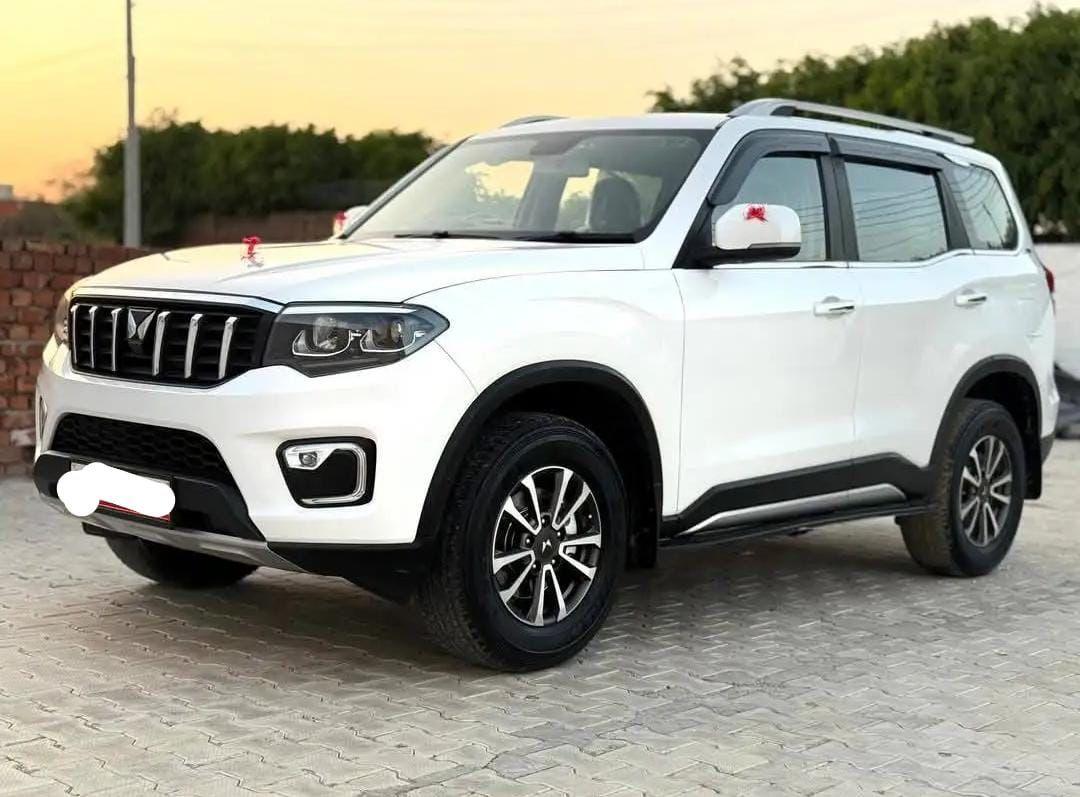Top FAQs About Renting a Car in India Answered

Top FAQs About Renting a Car in India Answered
Renting a car in India-whether for a quick weekend getaway or a longer adventure-gives you the freedom to discover towns and regions at your preferred pace. Even so, first-time renters often find the system confusing, with many questions about terms, fees, and day-to-day practicalities. To ease those concerns, we have tackled some of the most common FAQs about car rental in India. Whether you want a self drive car in Chandigarh or another city, these insights will steer you toward a smoother, hassle-free experience.
-
What Documents Are Required to Rent a Car in India?
Before you pick up your rental, you must produce a few basic papers to prove your identity and driving record.
Required Documents:Valid Drivers License: Your license should be valid for at least a year. For foreign visitors, an International Driving Permit (IDP) is often needed alongside the original license. Identity Proof: Present any government-issued photo ID, such as an Aadhar card, passport, or voter ID, to confirm your identity.
Credit Card: Almost every car-rental company expects guests to present a credit card to hold the security deposit and cover incidental charges. A few agencies will accept a debit card, but they prefer the added reassurance that credit offers.
Age Proof: Most operators set the minimum rent-er age at twenty-one, although some markets allow rentals at eighteen. Drivers younger than twenty-five typically pay a daily surcharge that can add up quickly.
Before booking a self-drive vehicle in Chandigarh or anywhere else, contact the company directly to confirm age rules and any other state-specific documents.
-
How Do I Choose Between an Automatic and Manual Car?
Choosing between an automatic and a manual transmission is a staple question for first-time renters and seasoned travellers alike. The right answer depends as much on personal comfort as on local road conditions.
Automatic Cars:
Take the strain out of stop-and-go traffic and tight city turns, freeing drivers to focus on navigation.
On unfamiliar highways they remove the mental load of shifting gears and help miles roll by with less fatigue.
Guests who learned to drive only in automatic vehicles or who share the wheel with nonmanual drivers find them especially reassuring.
Manual Cars:
Give skilled drivers an edge on steep hills, twisting mountain passes, or gravel tracks where gear choice matters.
They tend to burn slightly less fuel in calm hands, and the daily rate is often lower, leaving room in the budget for extras.
Preferred by seasoned motorists who like to feel directly connected to the car, manual transmission models remain popular on Indian roads.
Conversely, if you are new to Indian traffic or uneasy with gear shifting, opting for an automatic vehicle will likely make your journey more relaxed.
-
Are There Mileage Limits When Renting a Car in India?
Most Indian rental firms offer two broad mileage packages: limited and unlimited.
Limited Mileage: You receive a fixed daily quota-usually between 100 and 300 kilometres-and a surcharge applies for any distance beyond that.
Unlimited Mileage: This plan removes distance anxiety, letting you cover as many kilometres as you wish without extra fees; it commonly appears with long-term hires or higher-tier vehicles.
Before signing, double-check the specific ceiling with the agency, especially if your itinerary stretches across states or major tourist circuits.
Basic Coverage: Nearly every major car rental agency includes some level of basic insurance in the everyday rental rate. This usually protects the vehicle against damage from collision or theft, but does not extend to third-party harm or to specific parts such as tires, windshields, or roof panels.
Additional Coverage: Customers who want greater reassurance may purchase a Collision Damage Waiver (CDW) or Theft Protection (TP), both of which further limit out-of-pocket costs after an incident. Such options are often suggested, especially for long trips on unfamiliar roads.
Before signing, always clarify what the in-house policy actually protects and whether any gaps still exist. You should also review your own auto insurance policy or your credit card terms, since some plans extend similar coverage to rented cars at no extra charge.
What Happens if I Return the Car Late?
Bringing the vehicle back after the scheduled time almost always results in extra fees. Rental firms typically assess either an hourly surcharge or the full daily rate for each additional period.
Hourly Charges: If the car arrives at the lot just a few hours later than agreed, many locations will apply only a modest hourly rate instead of a full extra day.
Full-Day Charges: When you return the vehicle past the pre-arranged hour, the company may bill you for an entire additional day.
To sidestep this expense, simply bring the car back at the appointed time. Should you anticipate a delay, contact the agency early; they might adjust your reservation and allow you to keep the car longer without incurring the full-day fee.
-
Do Rental Firms Add Fees for Airport Pick-up or Drop-off?
Nearly all agencies impose a supplementary charge when you collect or return a vehicle at the airport. This expense, labeled an airport surcharge, varies by company and by the specific terminal or facility involved.
Airport Surcharge: A fixed amount, detailed in the rental agreement, is tacked on whenever the rendezvous point is located within an airport precinct.
Convenience: Although the fee is unwelcome, it spares busy travelers the trouble of reaching off-site lots, a major boon for foreign visitors or anyone racing to meet a flight.
Review the terms closely at the moment of booking, because these supplemental charges can add hundreds of dollars to your overall invoice.
-
Can I Rent a Car for One-Way Travel?
Yes, most major rental agencies in India now offer one-way leases, so you can collect a vehicle at one city and leave it in another. That convenience, however, usually comes with a extra charge.
One-Way Fees: The surcharge is calculated based on the distance between pick-up and drop-off points plus the operators own rules.
Availability: Because not every company has this option, its wise to ask about it and to get a clear quote before you book.
One-way rentals are especially handy for road trips or multi-city plans, letting you explore freely without backtracking to return the car.
-
Are There Any Special Requirements for Renting a Car in India?
Though core criteria tend to be uniform, some regions or rental types impose their own rules that travelers should note.
Self-Drive Rentals: In certain states, self-drive firms may ask for extra ID, proof of residence, or set an upper age limit. Typically the minimum age is 21, yet individual branches can choose to raise it.
Driving Permits: Most rental agencies require visitors from abroad to present an International Driving Permit (IDP) alongside their home licence, so arrange this document before you depart.
Before you confirm your booking, ask the agency about any regional driving rules.
How Do I Handle Tolls and Other Expenses?
On fast-moving routes between major Indian cities, toll plazas are almost unavoidable, and your choice of payment can affect the cost and convenience of your trip.
Toll Transponder: Many firms supply a small device that quietly deducts charges from your account each time you pass a booth. Keep in mind that a daily or one-time activation fee is common.
Manual Payment: Pass through a lane marked cash or card and pay in rupees, either with notes or, at some booths, by scanning a smartphone wallet.
To avoid surprises, clarify the toll options when you collect the car and note any surcharges linked to the transponder service.
Conclusion
Renting a car in India offers travelers both convenience and freedom, whether they are navigating bustling Chandigarh streets or planning a long-distance journey. A clear grasp of essential details-documentation, insurance, mileage caps, and late-return fees-empowers customers to book confidently and avoids unexpected surprises on the road. Always speak with the rental company to resolve any doubts before finalizing the reservation, and the trip will proceed with minimal hassle. Enjoy the open road!







